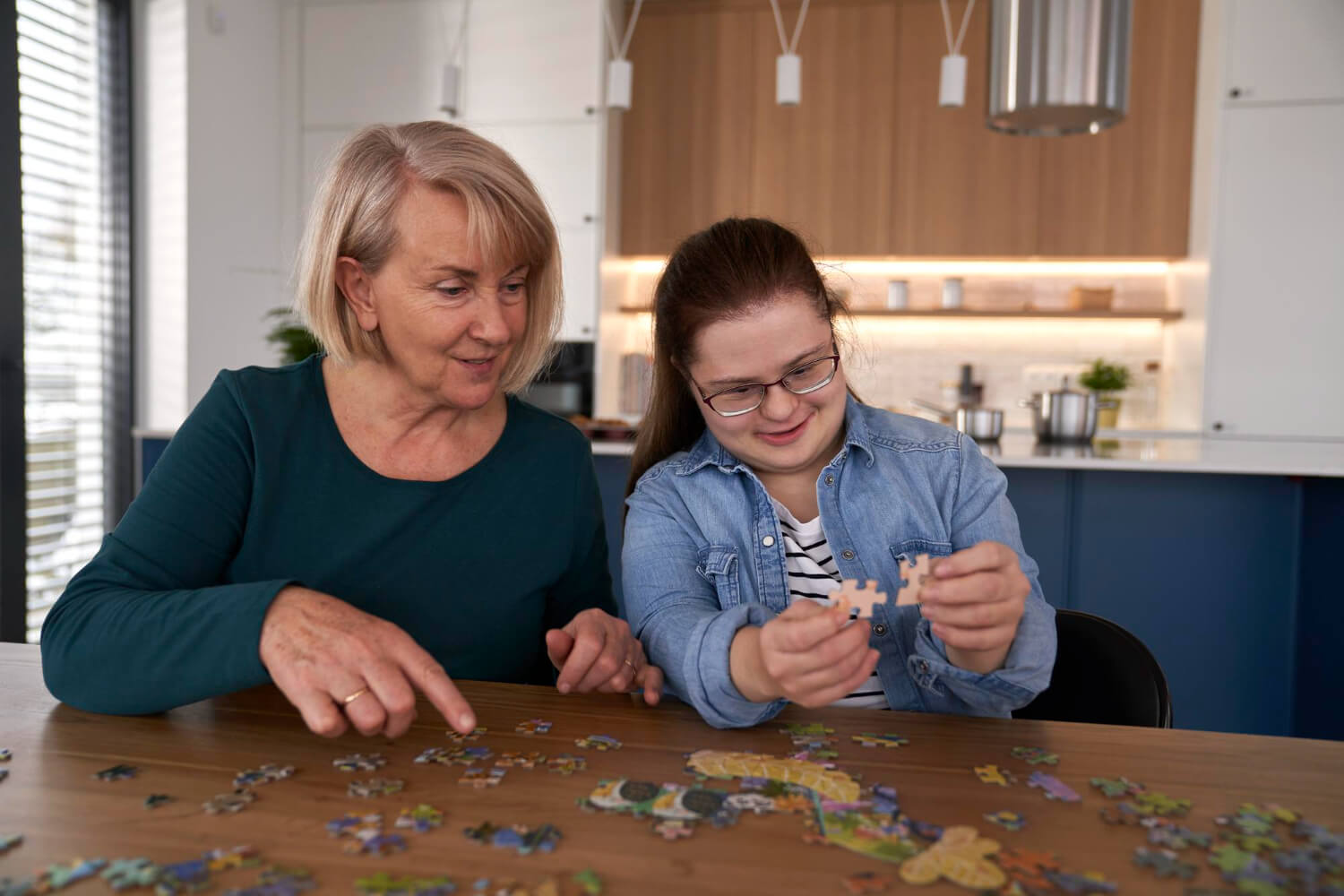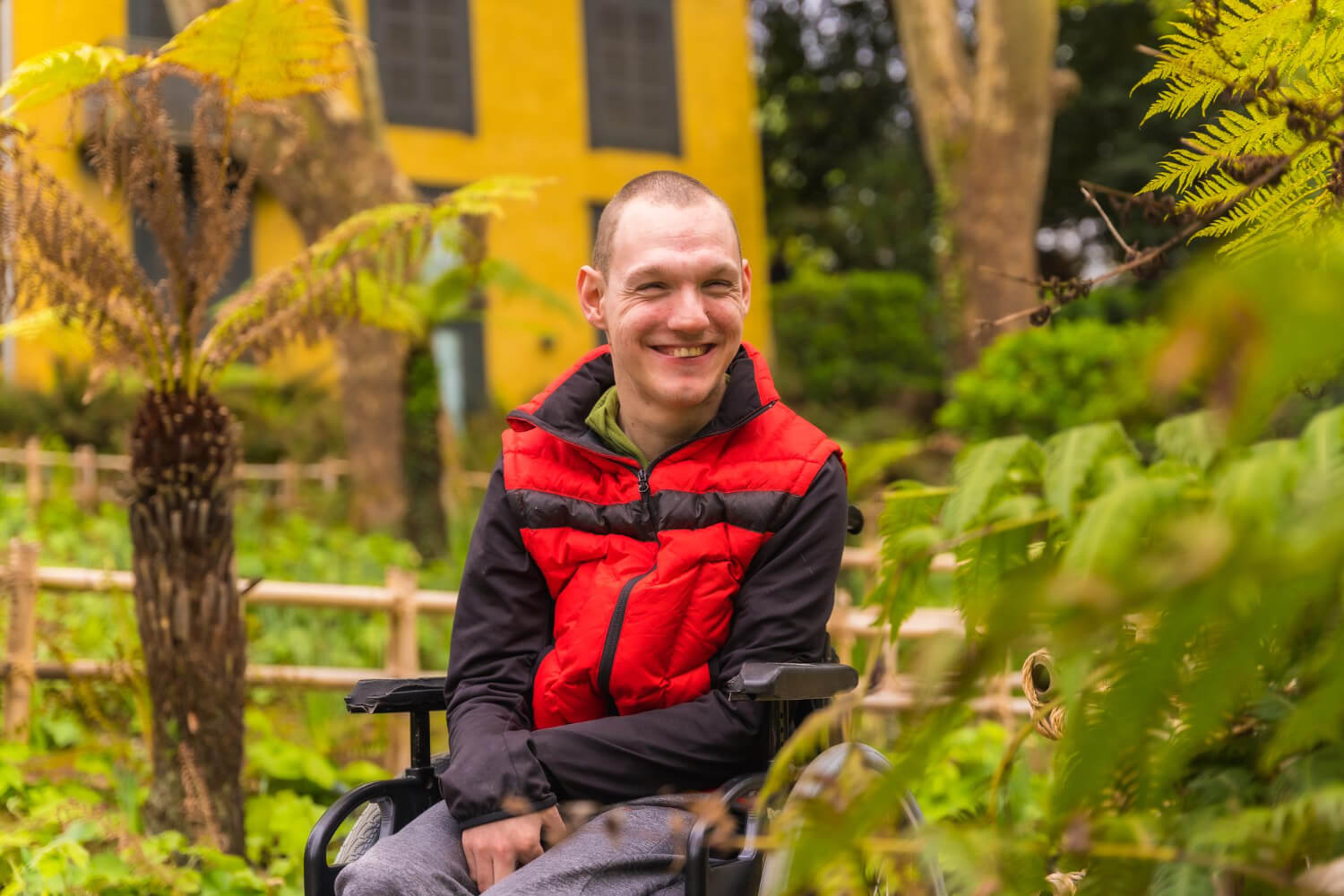NDIS respite care is a short-term support service designed to give informal carers a temporary break from their regular responsibilities while ensuring the participant continues receiving quality care. It’s a way to protect the wellbeing of both the person with disability and the people who support them on a day-to-day basis.
Under the National Disability Insurance Scheme (NDIS), respite care isn’t always listed under that exact term. Instead, it’s often funded through categories like Short Term Accommodation (STA) or Assistance with Daily Living. Regardless of the label, the goal is the same—making sure participants receive consistent, personalised support when their primary carer is unavailable or needs time to rest.
Respite care can look different for every family. At SS Disability Care, we tailor our services based on what works best for each participant’s goals, routines, and comfort levels. Some families prefer in-home respite, where our support workers come to the participant’s home to provide help with daily tasks, companionship, or supervision. Others may choose overnight care or short-term stays in a supported environment to try something new or build independence.
General Eligibility for the NDIS

Before you can access respite care through the NDIS, you first need to be eligible for the NDIS itself. The National Disability Insurance Scheme is designed to support Australians with a permanent and significant disability that impacts their daily life. It’s available nationwide and provides individualised funding for a wide range of supports—including respite.
To be eligible for the NDIS, you must meet the following criteria:
- Age requirement: You must be under 65 years of age at the time of your application.
- Residency: You must be an Australian citizen, permanent resident, or hold a Protected Special Category Visa.
- Disability requirement: You must have a permanent disability that significantly affects your ability to complete everyday tasks without support. This includes physical, intellectual, sensory, cognitive, or psychosocial disabilities.
- Need for support: You must need ongoing support from others or require support now to reduce future needs.
The application process includes submitting supporting documentation and going through an access request with the National Disability Insurance Agency (NDIA). Once approved, you’ll receive a personalised NDIS plan that outlines your goals and the types of support you can be funded for—including respite care if it’s considered reasonable and necessary.
For carers and families, understanding NDIS eligibility is the first step toward getting access to essential services like short-term accommodation or in-home respite. At SS Disability Care, we often support families in understanding this process and connecting them with support coordinators who can guide them through the planning and review stages.
If you or someone you care for meets the eligibility criteria, we encourage you to explore how NDIS-funded respite can help. It’s more than just a break—it’s a practical step toward building a more sustainable and supported care environment.
Who Can Access Respite Care Through the NDIS?

Respite care is available to NDIS participants who have the right supports included in their plan—and who need short-term care to maintain their wellbeing or give informal carers a break. It’s not just about eligibility on paper. It’s about your needs, your living situation, and how much support you receive from others.
If you’re an NDIS participant and you rely on a family member, partner, or friend to support you regularly, then you may be able to access funded respite care. This applies to many different situations:
- Your carer needs time off to attend to their own health, work, travel, or family needs
- You want to try living independently in a supported setting for a few days
- You need emergency care because your regular support network isn’t available
- You’re transitioning between living arrangements, such as moving out of home or adjusting after hospital care
To access respite care, your NDIS plan should include funding under one of the following categories:
- Short Term Accommodation (STA) – This covers temporary stays (usually up to 14 days at a time) and includes support with daily tasks, meals, and overnight supervision.
- Assistance with Daily Living (Core Supports) – This can be used flexibly for in-home respite, including personal care, household tasks, and active overnight care.
- Support Coordination – If you have this in your plan, a coordinator can help you arrange respite care that suits your situation.
It’s also important to note that respite isn’t just for participants with high support needs. Even if you’re relatively independent but need occasional help when your usual carer is unavailable, you may still be eligible. The key is demonstrating that respite care helps you reach your goals, maintain stability, or avoid crisis.
At SS Disability Care, we don’t take a one-size-fits-all approach. We get to know your specific needs, preferences, and routines—and deliver respite in a way that feels safe, comfortable, and empowering. Whether it’s a regular weekend break or a short-term stay during a life transition, our team is here to help make it happen.
What Needs to Be in Your NDIS Plan?
To use NDIS funding for respite care, the right supports must be included in your plan—though it might not always be labelled as “respite.” Many families don’t realise that respite can fall under broader categories like Short Term Accommodation (STA) or Assistance with Daily Living, depending on the type of care needed.
Here’s what to look for in your NDIS plan:
Short Term Accommodation (STA)
This is the most direct way respite is funded. STA covers short stays away from your usual home, up to 14 days at a time. It includes 24/7 support, personal care, meals, and accommodation. It’s a flexible support that can be used:
- When your regular carer is away
- To try living independently
- During transitions or recovery
- For routine breaks (e.g. monthly or quarterly)
At SS Disability Care, we help arrange STA in environments that are safe, accessible, and comfortable—with experienced support workers and a personalised care plan.
Assistance with Daily Living (Core Supports)
If your plan includes Core Supports, you may be able to use this funding for in-home respite. For example, if your carer steps away for the day, we can provide support workers to assist you at home with:
- Personal care (if required)
- Meal preparation
- Supervision and companionship
- Household tasks (depending on your capability and NDIS guidelines)
This type of respite keeps you in your familiar environment while giving your carer space to recharge.
Support Coordination
If you have Support Coordination in your plan, your coordinator can help:
- Identify how respite fits your goals
- Connect you with registered providers (like SS Disability Care)
- Prepare for plan reviews and request additional funding if needed
A good support coordinator will make sure respite care is planned proactively—not just used in emergencies.
What If It’s Not in My Plan Yet?
If you don’t currently have respite options in your plan, you can request it during your plan review. Explain why your carer needs support and how a short-term break will help you both continue living safely and independently. It helps to describe specific situations where respite would be useful, such as:
- Illness or burnout
- Temporary travel
- Developing life skills or confidence in new environments
Our team at SS Disability Care can also work with your coordinator or nominee to help justify these requests with real examples.
Planning ahead is key. Respite isn’t just a service—it’s part of building a sustainable, supportive life for both participants and their carers. If you need help understanding your plan or advocating for respite supports, we’re here to assist every step of the way.
How SS Disability Care Delivers Respite Support

At SS Disability Care, we know that no two families are the same—and neither are their respite needs. That’s why our approach is flexible, personalised, and designed around your situation, not just a generic service list.
Whether you need support for a few hours, overnight, or several days at a time, we deliver care that’s structured, safe, and completely tailored to your routine and preferences.
In-Home Respite Care
Many participants prefer to stay in their own home while their carer takes a break. We make that possible. Our trained support workers can step in for a few hours or provide overnight care—depending on your NDIS plan and what’s needed. This may include:
- Personal care assistance (if needed)
- Supervision and companionship
- Help with daily routines (meals, medication reminders, safe mobility)
- Light household tasks (in line with NDIS support guidelines and the participant’s capabilities)
If the participant is able to do certain tasks independently, our role is to assist—not take over—respecting their autonomy and supporting their skills.
Overnight and Extended Respite
When carers need a longer break or when emergencies arise, we provide overnight care either in the participant’s home or through Short Term Accommodation (STA) if it’s part of the plan. Our staff are experienced in active night support and sleepover shifts, ensuring participants are comfortable and safe throughout.
We also help arrange STA in supported environments when participants want to try something different, like living away from home or building independent living confidence.
Flexible, Reliable Staffing
Every support worker we assign is carefully matched based on the participant’s needs, personality, and preferences. All our staff are NDIS-screened, fully trained, and experienced in a range of disability supports—from physical assistance to emotional regulation and routine continuity.
We understand that respite care is built on trust. You’re not just looking for a break—you’re trusting someone else with your loved one. That’s why we only assign support workers who meet our highest quality and professionalism standards.
Emergency and Short-Notice Options
Life doesn’t always go to plan. If you need short-notice or emergency respite, we do our best to step in quickly and coordinate support with minimal disruption. While we recommend scheduling respite where possible, we also stay flexible for unexpected events.
Support Coordination Assistance
If you have Support Coordination, we can collaborate directly with your coordinator to activate respite care from your existing funding. If not, we’ll help you understand your options and prepare for your next plan review to make sure respite support is included.
With SS Disability Care, respite is more than a scheduled service—it’s a break that feels safe, respectful, and aligned with your routine. Whether you’re a carer needing rest or a participant wanting more independence, we’re here to help make respite care work for you.
Final Thoughts
Respite care isn’t just about giving carers time off—it’s about creating a sustainable, balanced support system that works for everyone involved. If you’re caring for a loved one with a disability, or if you’re an NDIS participant looking for more independence or flexibility in your routine, respite care can make a real difference.
As a registered local NDIS provider, we don’t just deliver services—we work alongside you to find the right support. Whether you need in-home assistance, overnight care, or short-term accommodation, everything is tailored to suit your daily routine, preferences, and goals. You’ll receive support that’s practical, respectful, and built around what matters most to you.
If you’re not sure what’s in your NDIS plan or how to access respite care, we’re here to help. From reviewing your funding to working alongside support coordinators and families, our team will guide you through the process with clarity and care.
Contact SS Disability Care today to learn more about your options.
